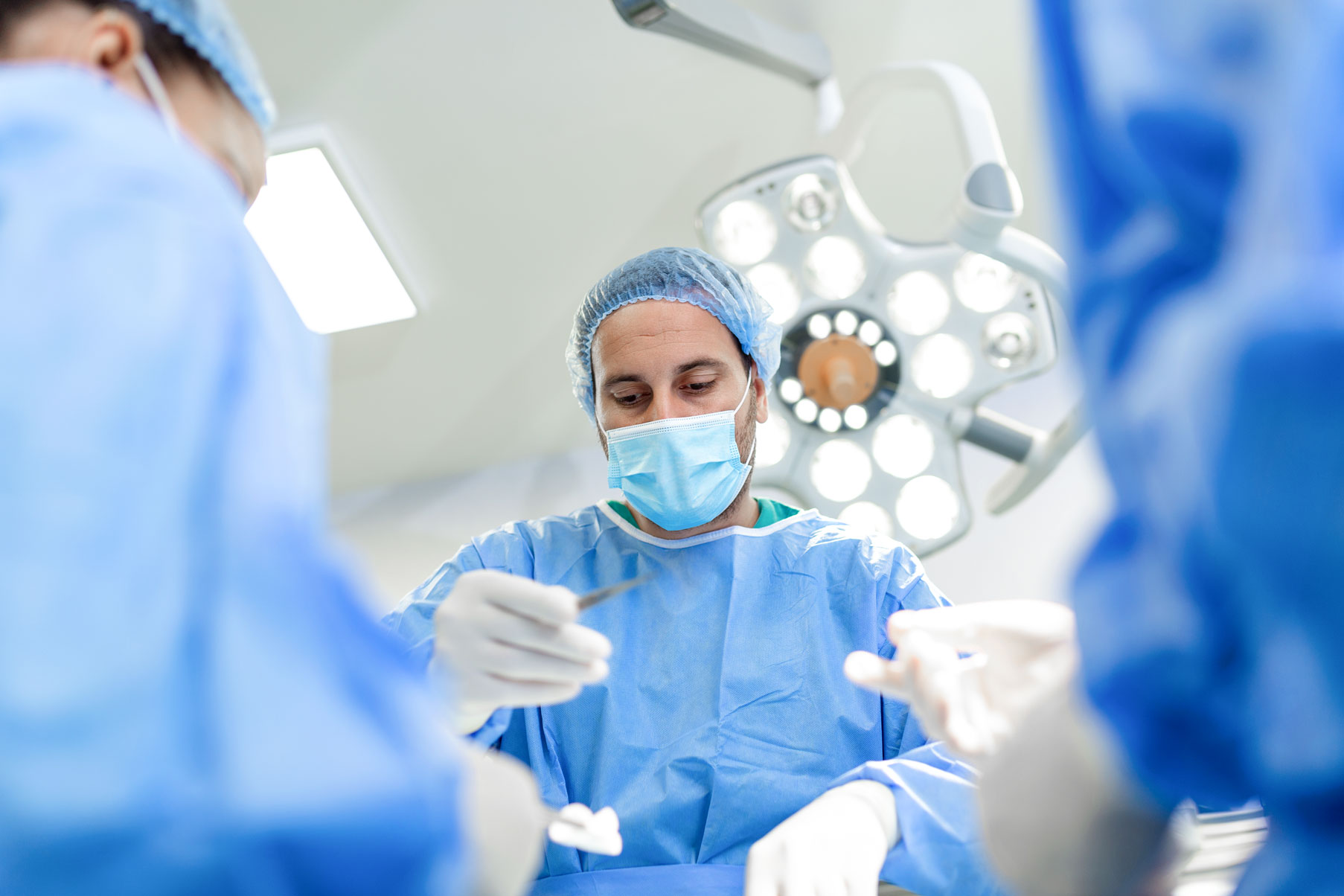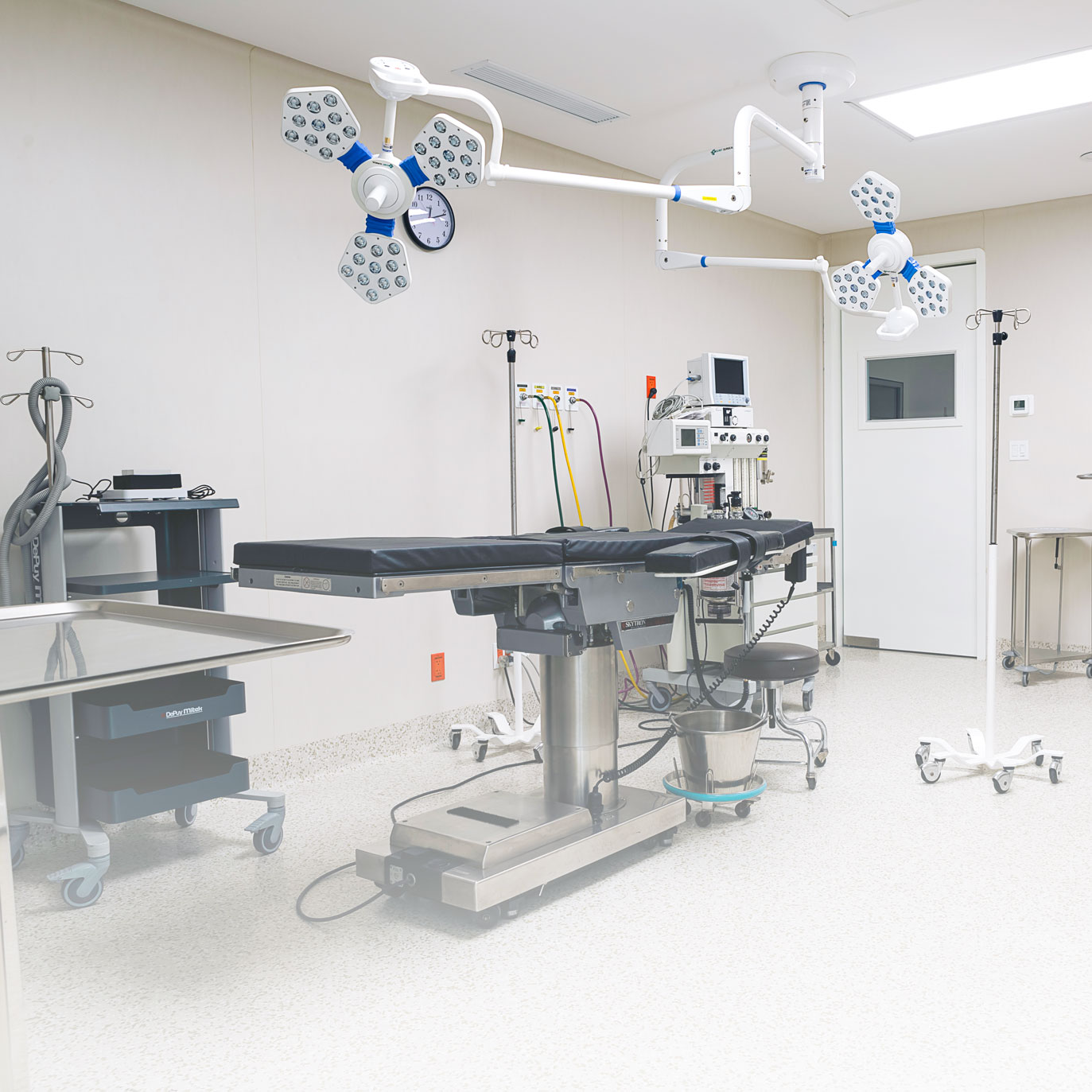BAJA FERTILITY SERVICIES
Endoscopic Surgery
ABOUT
Endoscopic Surgery
At Baja Fertility Services, we offer minimally invasive procedures such as laparoscopy and hysteroscopy to treat various gynecological conditions, including uterine fibroids, endometriosis, and endometrial polyps. Our commitment is to provide specialized and personalized care to help each patient achieve their fertility goals.

Laparoscopy
Laparoscopy is a minimally invasive surgery used to diagnose and treat a variety of gynecological conditions through small incisions. A specialized lens is inserted through a small incision at the navel, and 1 to 3 additional incisions are made in the lower abdominal quadrants to insert surgical instruments. This method is commonly used to treat:
• Uterine fibroids
• Pelvic adhesions
• Endometriosis
• Ovarian cysts and tumors
During the procedure, a dye-infused liquid may be injected to assess the patency of the fallopian tubes, ensuring accurate diagnosis and effective treatment.
Hysteroscopy
Hysteroscopy is a procedure performed vaginally and through the cervix using an instrument called a hysteroscope. This allows visualization of the inside of the uterine cavity and the treatment of various conditions, such as:
• Uterine fibroids
• Endometrial polyps
• Intrauterine adhesions
• Uterine anatomical abnormalities, such as septa
Both procedures—laparoscopy and hysteroscopy—are performed using advanced techniques and state-of-the-art equipment, ensuring quick and effective recovery while minimizing pain and scarring. At Baja Fertility Services, we are committed to providing safe and effective treatments that support our patients’ reproductive health and overall well-being.

CONTACT
PLAN YOUR VISIT
Book Your Appointment
The first step is to contact us and schedule your consultation.
Prepare Your Medical Information
Gather your medical history and a list of questions to discuss with your doctor.
Attend Your Initial Consultation
Make sure to arrive on time with all the necessary documentation.
CONTACT
BOOK YOUR APPOINTMENT
We are here to support you on your journey to parenthood. Booking an appointment with us is the first step toward receiving the care and support you need.
GET IN TOUCH
If you have any questions or need more information before scheduling your appointment, feel free to contact us. We are here to help.
LOCAL PHONE
664 635-8427
PHONE FROM THE U.S:
001 619 4003830
+52 664 166 9569
info@bajafertility.com
ADDRESS
Torre Norte 2: Fray Servando Teresa de Mier 1351, local 601, Zona Urbana Río Tijuana, Tijuana, B.C.
FAQ
Frequently Asked Questions
What are the causes of infertility?
They can be social or medical in nature. Among the social causes are the delay in seeking to have children and the stress experienced by both men and women in daily life. Among general medical causes, we find extreme obesity, anorexia nervosa, serious illnesses, thyroid disorders, substance and medication abuse, alcohol and tobacco use, and chemotherapy. About 20% of cases remain unexplained.
Medically, the most common conditions affecting women are issues with the Fallopian tubes, ovulation disorders, uterine cavity abnormalities, and endometriosis, among others.
In men, the issues typically involve sperm count, motility, and abnormal sperm morphology.
Is infertility only present in women?
Although many people associate infertility with women, it actually occurs with equal frequency in both men and women.
Do I need to bring my laboratory tests? What are they used for?
It is important. If you have already been in consultation or treatment for infertility, you should bring any tests you have previously undergone, such as hormonal tests, ultrasounds, X-rays (such as hysterosalpingography), semen analyses, among others.
Before starting an assisted reproduction treatment cycle, you will be required to have HIV testing, hepatitis B blood tests, hepatitis C blood tests, and VDRL testing for syphilis.
It is important to bring your test results if you have them; otherwise, the clinic will schedule them on the appropriate days for their performance.
Medically, the most common conditions affecting women are issues with the Fallopian tubes, ovulation disorders, uterine cavity abnormalities, and endometriosis, among others.
In men, the issues typically involve sperm count, motility, and abnormal sperm morphology.
Antes de comenzar un ciclo del tratamiento de reproducción asistida se le pedirá análisis de VIH, de la hepatitis B; Análisis de sangre para hepatitis C. VDRL para prueba de sífilis.
Es importante llevar sus exámenes si los tiene, en caso de no tenerlos en la clínica se programaran en sus respectivos días ideales para realizarse.
En cuanto a lo medico, las situaciones que más se alteran en la mujer son Trompas de Falopio, Ovulación, Cavidad uterina, endometriosis entre otras.
Y en el varón, el numero de esperma, motilidad, formas anormales. De los mismos espermas.
What will happen at my first fertility consultation?
Bring the following with you if applicable:
Make a list of all your questions so you won’t forget them when you are with your doctor.
A history of your fertility (summary of any previous treatments).
If you have undergone fertility treatment elsewhere, you have the right to request a report from that clinic detailing your treatment history.
Blood test results.
Semen analysis results.
Reports from previous examinations such as X-rays or any surgeries you may have had.
The initial consultation lasts approximately one hour, and your partner should attend with you. You should arrive 15 minutes before your appointment to fill out a form and have your vital signs taken before seeing the doctor.
A complete and comprehensive medical history will be taken from both partners, if applicable. A nurse will be present during any gynecological examination. If necessary, the husband will be asked to provide a semen sample for analysis (he can also request to provide the sample later if he is uncomfortable doing so on the day of the appointment).
In which cases is Artificial Insemination recommended?
It is generally recommended when sperm count or motility is low, after failed induction and intercourse treatments, or after endometriosis treatments.
Is age important when undergoing assisted reproduction treatment?
Assisted reproduction has given us greater opportunities to welcome a new loved one into our homes; however, pregnancy is not 100% guaranteed. Age is a very important factor for success. The recommended age range is between 20 and 35 years old. After this age, ovarian reserve begins to decline significantly, reducing the chances of pregnancy and increasing the risk of genetic abnormalities, such as Down syndrome.

